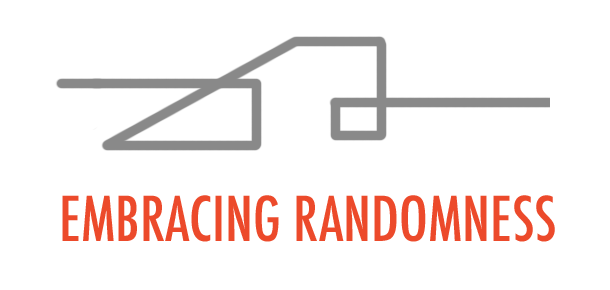Welcome to The Startup Foundry.
Embracing Chaos: Random Participation and the Web
Guest Author
TSFPublished: May 16, 2011 3:18 pm

This is a guest post by Jason Lorimer. Jason is an entrepreneur @CulturaHQ, advocating on behalf of those with the ambition to do more than just entertain ideas.
I very much view the overwhelming public interest in this simple chat site as an early indicator of peoples willingness to participate in random interactions as a way to increase the return on their experiences. There are plenty of less well known examples of this like that of Japans’ Ogori Cafe where you get what the person in front of you ordered for lunch or the application I use as a screen saver in Map Crunch. It takes random Google Street View images and rotates them randomly at your behest or on your behalf. Most of what exists to date would be widely considered novelty but that is about to change.
In the post-internet economy, people have access to whatever they want, wherever they are.
Their ability to participate passively in exchanges where they can add their own value to things they buy and services they use will be essential. Experience based commerce will become the standard practice across industries. Companies competing to create and package compelling experiences in a world where the lowest price is accessed easily from our cell phones and the concept of scarcity is abolished by platform marketplaces where people can buy and sell from each other directly, all but eliminating the ability for brands to control the perception of one or more of their products being rare and thereby valuable.
Take Etsy for example. I am a big fan of this platform filled with handmade products from
around the world and as such, often post ideas for their site. In this case, a simple function focused around a prominently placed button would randomly populate an artisans profile, complete with their available products. This fun and productive interface would expose
vendors to additional prospects and customers to interesting products they might have not otherwise have had occasion to search for. All this in a mostly passive way, taking the existing behavior of window shopping and leveraging it to increase sales.
I am extremely surprised that social networks have not embraced randomness to any notable degree as of yet. Think of randomly populating a fellow student from your high school on Classmates.com or an available member of the opposite sex in your area on Match.com
Think about mobile commerce melding with social in a random and ultimately profitable way.
One example would be taking the the much talked about Groupon Now application which while pin pointing your exact location, asks you simply: Are you Hungry or Are You Bored, then populates deeply discounted deals for businesses on the platform by distance on your phone.
The same basic application could be used to match people interested in the same categories, currently in the same vicinity. So, essentially you could click a button and be matched with a person or people and a deal. You could mutually choose to accept the occasion or pass right from the phone. Something randomly fun to do and someone to do it with, all in a few clicks.
How would you work randomness in to your model to improve your customers experience?
For more startup news, follow us on Twitter @startupfoundry or on Facebook.
-
👉 Filed Under.
Categorised in: Strategy
Get Connected:
If you like startups, join our weekly mailing list. Good startup content, no fluff.
👇

Hi, I'm Paul Hontz.
I'm a YC alumn and I love startups. I created TSF to highlight companies I find interesting. You can learn more about me here.
Recent Posts:

The Story of Cruise (YC W14): How 4 people built a self driving car in 7 months.
Jul 8, 2014 2:35 pm

I Want To Write About Your Startup – Relaunching TSF
Jan 17, 2014 5:14 pm

How To Do B2B Email Sales
Nov 23, 2011 2:12 pm

Nasty Bug in iOS 5.0.1 OTA Update screws up Address Book on the iPhone 4S
Nov 10, 2011 11:56 pm

It’s Easier to Answer to Your Code Than Your Customers
Oct 28, 2011 2:25 pm


